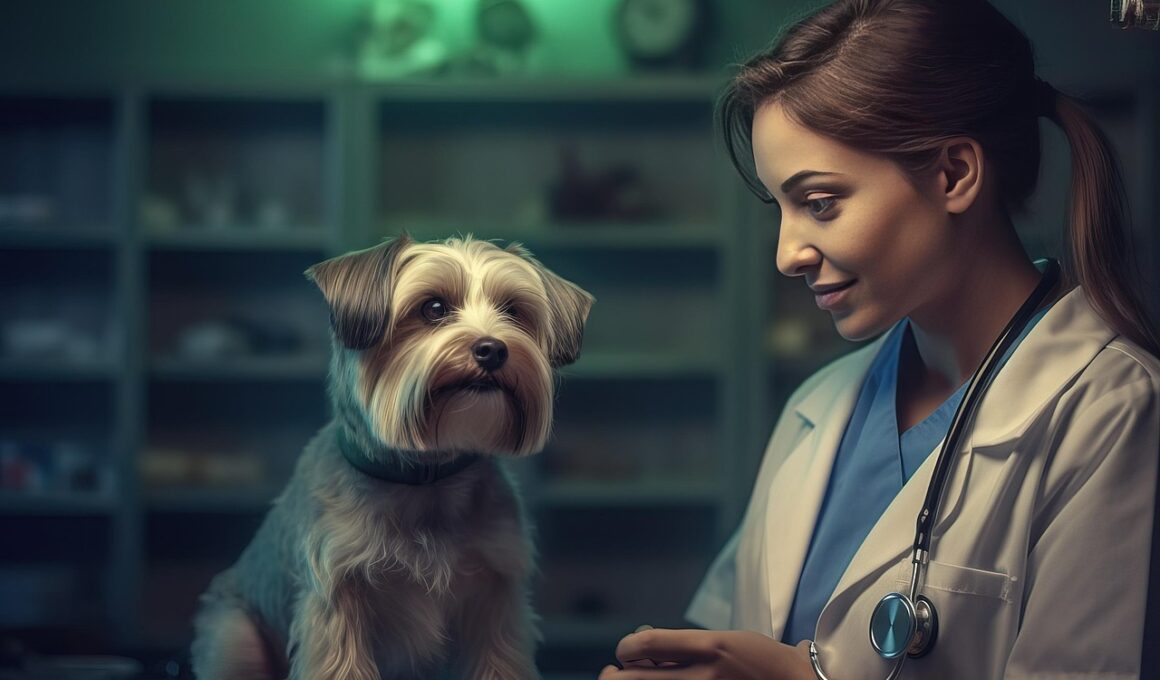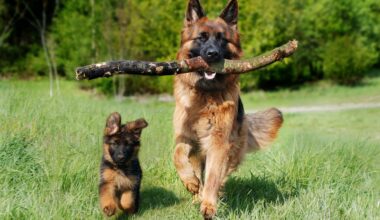Parvovirus Vaccine and Dog Breeds: Specific Considerations
Parvovirus is a serious viral infection that affects dogs, especially puppies. The parvovirus vaccine is essential for preventing this disease and ensuring the health of dogs across various breeds. However, understanding the unique needs of specific breeds is crucial. Some breeds, due to their genetic predispositions, may be more vulnerable to viral infections. Consequently, breed-specific considerations can significantly impact vaccination strategies. For instance, smaller breeds, like Chihuahuas and Yorkshire Terriers, often have different immune responses than larger breeds. Vet professionals recommend tailored vaccination protocols to address these differences. Additionally, factors such as age, health history, and lifestyle play pivotal roles in determining the optimal timing and frequency of vaccinations. In particular, puppies should start receiving vaccinations at six to eight weeks of age. It’s vital to consult with a veterinarian to establish a tailored vaccination plan. This ensures maximum protection not only against parvovirus but also other diseases. Regular check-ups and adherence to vaccination timelines can dramatically reduce the risk of severe health threats and ensure a longer, healthier life for dogs.
Dogs that are socialized with others or frequently visit dog parks are at higher risk for contracting parvovirus. Thus, understanding breed susceptibility aids in preventive measures. Large breeds such as German Shepherds and Labrador Retrievers typically respond well to vaccinations. Nevertheless, they are not immune to the risks associated with parvovirus, especially if exposed to unvaccinated dogs. While it’s essential to follow up on the core vaccination schedules, the consideration of environmental exposure and breed characteristics cannot be overlooked. Some breeds may require booster shots or additional vaccines more frequently, while others may need a revised vaccination protocol. For instance, breeds with underlying health issues might necessitate closer monitoring and more personalized vaccination schedules. Furthermore, genetic factors can influence a breed’s ability to develop immunity post-vaccination. Therefore, veterinarians might recommend titers to assess immunity levels. Responsible dog owners should maintain a proactive approach regarding their dog’s vaccination history. Keeping a detailed record helps in ensuring that the dog receives all necessary boosters in a timely manner, optimizing its chances of immunity.
Understanding Your Dog’s Vaccination Schedule
The vaccination schedule for parvovirus can vary based on individual circumstances. Most puppies receive a combination vaccine that includes parvovirus, beginning at six to eight weeks. These initial vaccinations create a foundation for immunity that is built upon with subsequent doses. Puppies require boosters every three to four weeks until they reach about sixteen weeks of age. After the initial series, adult dogs need boosters every three years to maintain immunity. However, breed-specific factors necessitate additional boosters or earlier vaccinations for certain breeds. Some dogs may require more frequent vaccinations due to lifestyle choices, such as agility sports or therapy work. Furthermore, dogs in shelters or rescues might be at an increased risk of exposure, warranting earlier vaccination schedules. Therefore, maintaining an open line of communication with your veterinarian is vital to adapt the vaccination program as needed. This personalized approach ensures that your dog’s health and safety are prioritized. By knowing your dog’s breed and unique needs, you can work together with your veterinarian to establish the best possible vaccination strategy.
Finally, it is important to consider the aftermath of vaccinations. Some dogs might exhibit mild side effects following vaccination. These can include lethargy, a slight fever, or a temporary decrease in appetite. Most side effects resolve within a day or two and are not severe. However, it is crucial to monitor your dog closely during this period. If severe side effects occur, such as vomiting or prolonged lethargy, immediate veterinary attention is necessary. Additionally, hypoallergenic breeds such as Poodles may react differently to vaccines than other breeds. Understanding these dynamics further strengthens the bond between pet and owner. Vaccination reactions can provide valuable feedback regarding your dog’s health and wellbeing. Consequently, ensuring a supportive home environment during recovery can alleviate any post-vaccination stress. Additionally, having a vet’s contact info readily available for emergencies ensures preparedness. On the whole, vaccinations build a robust defense against parvovirus and enhance your dog’s quality of life. Hence, it’s vital to take an active role in your dog’s vaccination journey. With proper care, your furry friend can thrive and avoid the onset of preventable diseases.
The Role of Diet in Immunity
The immune system plays a significant role in how a dog responds to vaccinations. A proper diet can considerably impact its overall health and resistance to diseases, including parvovirus. High-quality commercial dog foods deliver essential nutrients required for optimal immune response, helping the body effectively combat illnesses. Additionally, owners should consider the use of supplements designed to support canine immune health. Ingredients like omega fatty acids, antioxidants, and vitamins can boost immunity. Research indicates that dogs with robust immune systems can respond more favorably to vaccinations. Consequently, breed-specific dietary needs and preferences matter, as certain breeds might thrive on varied diets or have unique allergies. For example, breeds prone to gastrointestinal issues may require special formulations. Selecting diets based on breed and health requirements can optimize the efficacy of vaccines. Consulting with a veterinary nutritionist can help craft a diet that aligns with your dog’s individual health needs, age, and breed specificity. This personalized approach fosters an aligned strategy towards health, ensuring vaccinations effectively support long-term immunity.
In conclusion, understanding the parvovirus vaccine and its implications across different dog breeds is paramount for pet owners. Since each breed presents distinctive challenges and needs, adopting a one-size-fits-all approach is unrealistic. Engaging with veterinarians regarding specific breed protocols guarantees an effective vaccination strategy that accounts for relevant factors. Notably, while the parvovirus vaccine is integral to a dog’s health, vigilant observation of both physiological and dietary needs must accompany this prevention. Dogs that receive tailored vaccinations in conjunction with immune-supporting diets foster resilience against parvovirus and other common diseases. Owners should prioritize regular veterinary visits and proactively address changes in health or behavior. Building a trusting relationship with your vet ensures that you stay informed about best practices in dog care and vaccination. Ultimately, fostering health through informed decision-making and timely vaccinations gives dogs the best chance at thriving amidst various health threats. Protecting canine companions starts with understanding their unique needs — and knowledgeable, dedicated caregivers play a critical role in this endeavor.
For further information regarding parvovirus vaccination techniques and breed-specific health recommendations, reliable sources such as the American Veterinary Medical Association (AVMA) provide expert guidance. They have comprehensive resources for dog care, including methods for preventing parvovirus and details about vaccination safety and efficacy. Likewise, local veterinarians can offer the most current information tailored to your geographic area. Understanding the significance of vaccination is crucial in enhancing your dog’s health. Dogs are loyal companions, and ensuring their health is a priority that every pet owner must embrace. From vaccinations to diet, every aspect of a dog’s life should cater to their well-being. An informed community of pet owners and professionals creates a supportive environment that fosters healthy pets. Keeping up with vaccinations and health checks not only ensures your dog remains protected but also promotes a flourishing relationship that positively impacts your lives together.



